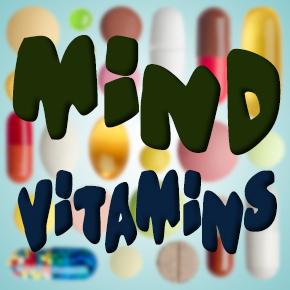The first two years of medical school, for most students, consist mainly of studying from books, lectures, notes and papers. If a student is having trouble understanding the transporters in the kidney, they can read their notes or review the lecture. Later on in medical school, students spend more time on clinical clerkships. If on a rotation a student is told they need to work on their physical exam skills, they can go to the library and check out a book on physical diagnosis. When a lab result comes back on a patient that may be confusing, a student can quickly look it up on the internet.
Whenever there is an aspect of concrete knowledge that does not make sense, every student knows how and where to look it up. Medical students are great at studying, looking up information on the internet, reading papers, and reviewing textbooks — but what happens when a student needs to work on something that is not easily found in one of these resources? For example, many students may be told, or decide for themselves, that they need to work on their interactions with and empathy for their patients. While there is no textbook that gives a step-by-step approach to improve empathy, what if there were a way that students can study to be more empathetic?
Kidd and Castano published an article in Science entitled “Reading Literary Fiction Improves Theory of the Mind.” The editor’s summary of the article defines theory of the mind as “the human capacity to comprehend that other people hold beliefs and desires and that these may differ from one’s own beliefs and desires.” The article further breaks down theory of the mind into two categories: cognitive and affective. Cognitive is the ability to understand others’ beliefs and ideas, and affective is the ability to understand others’ emotions or have empathy. Kidd and Castano performed a series of five experiments in which they concluded that reading literary fiction improves theory of the mind. It is a significant distinction that literary fiction, and not popular fiction, improves theory of the mind. The authors hypothesized that the reason for this is that in popular fiction, the characters are often stock characters that behave according to predictable patterns. However, in literary fiction, the characters are more complex and often act contrary to how the reader might expect. As a result, literary fiction forces the reader to be an active participant who must be more engaged with the text in order to understand why these complex characters act and feel a certain way. This can translate into a more sincere effort to comprehend the emotions and actions of people in our daily lives.
The conclusion that literary fiction improves theory of the mind is significant for physicians and medical students as it is important to be able to empathize with patients to provide better care. Although clinical clerkships, exams, research, and studying take up a lot of time, reading literary fiction could prove an invaluable addition to the education of medical students. If students or physicians do decide to take on the challenge of reading literary fiction to supplement their personal education, it can be difficult to decide what literary fiction is.
Kidd and Castano approached this problem by choosing their literary pieces based on books that had received awards, and based on the opinions of a panel of experts. In the absence of a panel of experts, the best students can do is to look at books that have received awards in the past, including The National Book Award, the Pulitzer Prize and Time Magazine’s Top 100 Novels of All Time, all of which could be an integral part of improving empathy and understanding of patients.
Just like your multivitamin provides your body with the vitamins that may be missing from your diet, Mind Vitamins provides you with resources that may help fill in gaps in your med school curriculum. In med school we learn the scientific aspect of medicine that is necessary to treat diseases, but there are intangible and personal aspects that are necessary to treat the whole patient. This column will enrich your education so that you may be able to better understand your patients’ perspectives and treat them not just as a disease, but as a person.

